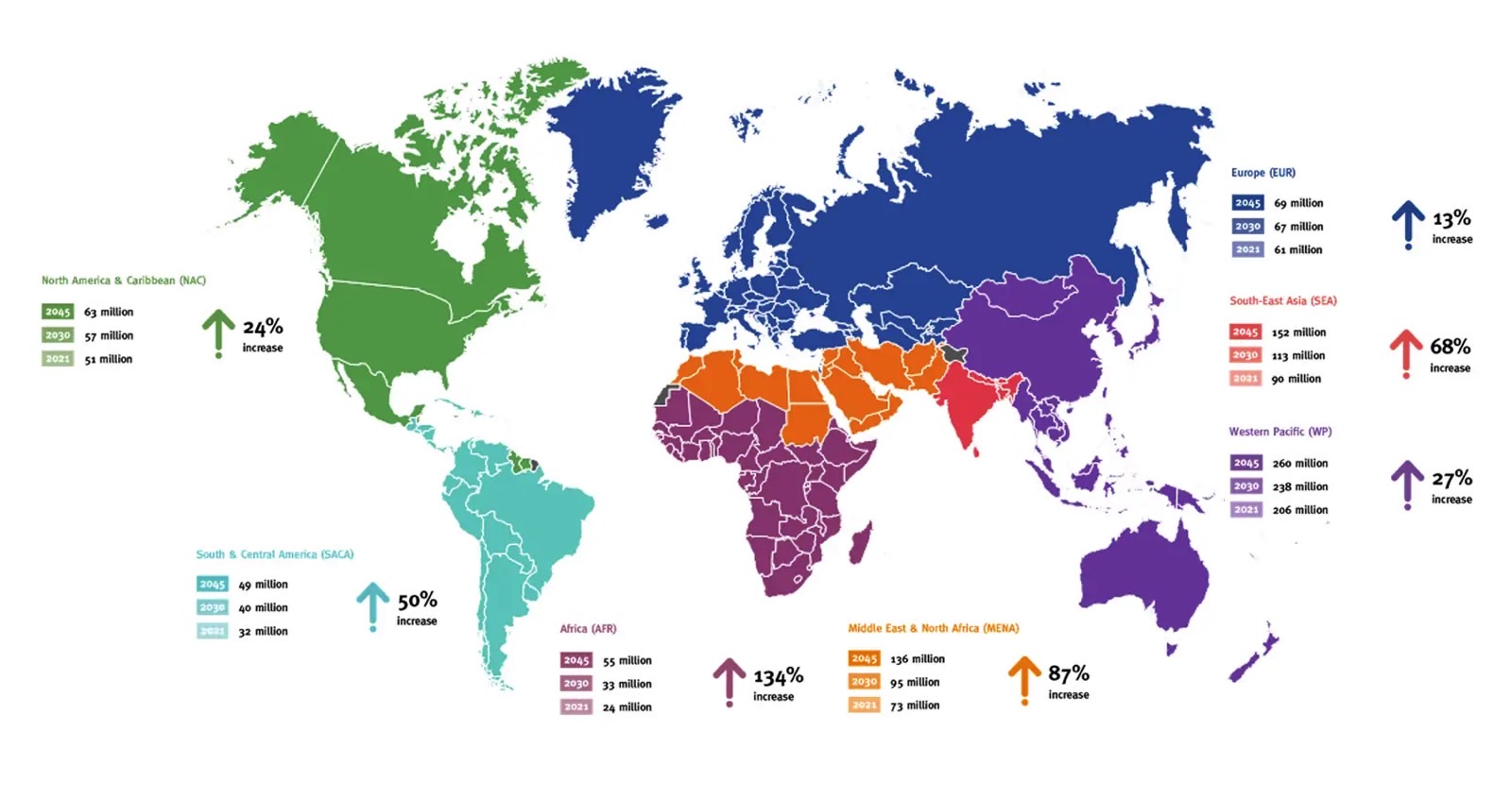Study Links Sugar-Filled Drinks To Millions Of Heart Disease And Diabetes Cases Each Year
From sodas to energy drinks, the consumption of sugary drinks has been linked to more than 2.2 million new cases of diabetes and 1.1 million new cases of heart disease annually, raising concerns over the health risks these drinks bring to the table.
The problem is especially severe in low- and middle-income countries, where sugar-filled drinks are aggressively marketed and often more accessible than healthier alternatives. In Latin America and the Caribbean, nearly 24% of new type 2 diabetes cases in 2020 were attributed to the consumption of sugary beverages.
Similarly, sub-Saharan Africa is experiencing the highest percentage increase in diabetes cases over three decades, with sugary drinks contributing to 21 percent of new diabetes cases and 11 percent of heart disease cases, the study highlights. The health risks of sugary drinks stem largely from their composition.
Packed with sugar but devoid of nutritional value, these beverages cause rapid spikes in blood sugar levels. Over time, this leads to weight gain, insulin resistance, and a cascade of metabolic issues that pave the way for type 2 diabetes and cardiovascular diseases.

Unlike type 1 diabetes, type 2 is preventable, making this trend particularly concerning. Beverage companies' marketing strategies only exacerbate the issue. In many urban centers, social media influencers promoting sugary drinks target young people, filling an information void left by insufficient nutrition education.
As a result, consumption continues to rise, putting additional strain on healthcare systems ill-equipped to handle the long-term consequences of these preventable diseases. Solutions do exist, of course. Public health campaigns, taxes on sugar-sweetened beverages, and stricter advertising regulations have proven effective in some countries.
For example, Mexico introduced a sugar tax in 2014, which helped reduce consumption. However, much more needs to be done, particularly in regions like Latin America and Africa, where the health impacts are most severe. We've seen some major breakthroughs in creating diabetes cures, but tackling the issue at its roots would be massive.
Reducing sugary drink consumption isn't just about tackling diabetes and heart disease; it's about creating a healthier future for communities worldwide. By tackling the health risks of sugary drinks now, we can provide a healthier future for the next generation.
